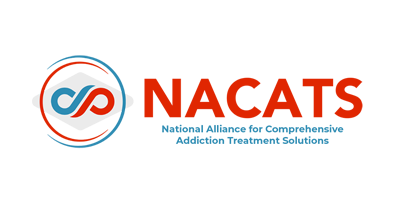
Heroin use may be pleasant at first, but it can lead to all kinds of unpleasant problems. A life can quickly be turned upside down as heroin takes center stage.
For the person living with heroin addiction, the desire to use feels ever-present. In contrast, from an outsider’s perspective, it may be difficult to know if a loved one is living with heroin addiction. It is helpful to gain more clarity on the topic of heroin and the many signs of heroin addiction.
Read on to learn more about heroin; the behavioral, physical, and psychological signs of heroin addiction; opioid-related data in Tennessee and Virginia; and heroin addiction treatment available at ReVIDA Recovery®.
Table of Contents
What Is Heroin?
Heroin is a type of opioid drug that is made from morphine. Heroin comes as a white or brown powder, or a black, sticky goo. Heroin can be mixed with water and injected with a needle, smoked, or snorted.
How Does Heroin Addiction Happen?
According to the Mayo Clinic, opioids (including heroin) activate or jump-start the powerful reward centers in the brain, similar to the ways love, sex, shopping, or social media use do. Opioids trigger (set off) the release of endorphins that encourage habit formation. Endorphins are neurotransmitters in the brain that create feelings of pleasure and cause a temporary but very powerful sense of well-being. Endorphins also can lessen the feelings of pain.
Opioids create a sense of calm and euphoria (great happiness) in the person that uses them. This calm and happy feeling often allows the person to temporarily forget any physical, mental, or emotional pain they may be having in their lives. This escape from a painful everyday reality is a primary motivator for continued heroin use.
Frequent, ongoing heroin use can lead people to neglect or ignore everyday commitments, such as school, work, or family responsibilities. Continued heroin use can make any problems the person does have worse than they were previously. This worsening of problems can lead a person to increase heroin use. More heroin use creates even bigger problems. Heroin use leading to more problems can create a downward spiral for the person addicted to heroin.
Tolerance also adds to the downward spiral. The issue is that when heroin wears off, the person craves feeling good once again. As a person becomes more addicted to heroin, they develop a tolerance, or a need to take more and more heroin to achieve the same effect. The person then spends more time and money on getting and using heroin.
Signs of Heroin Addiction
Being aware of the behavioral, physical, and psychological signs of heroin addiction can help you to identify when your loved one may be facing it.
To further understand the common signs of heroin addiction, we will be following the storyline of a 25-year-old male, Jack, who is living with heroin use.
Jack lacks a support system, meaning a network of people who provide him with practical or emotional support. He is arriving by himself at an addiction treatment center at the recommendation of his probation officer. Jack will be responding to questions posed by the intake (first evaluation) counselor.
Behavioral Signs of Heroin Addiction
Counselor: I am going to hand you a list of common behavioral signs of heroin addiction. When I say the word “behavioral,” I am talking about how you act by yourself and in reaction to others. Would you mind taking some time to look over these behavioral signs and explain the ones you have struggled with a little bit further?
Jack: Sure. [Jack looks over the list.] Problems at work happen a lot for me. To be honest, I am dragging my feet to get to work every day. I am not proud of it, but I’ve used heroin in the work restroom just to try to get through my work shift. I haven’t been caught yet, but I’m sure it’s just a matter of time.
When I’m at work, all I’m thinking about is heroin and when I can get my next hit. I work to pay for it.
I know you know that I was sent here by my probation officer. I got high and decided to drive. I barely remember it all happening. I was charged with being under the influence and possession because I had stuff in my car. Like I said, I’m not proud, but that’s what has been going on with me.
Behavioral signs of heroin addiction include the following:
Problems at work, school, and/or home
- This may include trouble concentrating and difficulty completing important tasks
Interpersonal or social problems
- This could look like frequent arguments with a partner, family members, and friends
Isolating or separating self from activities, people, and things they used to love and enjoy
- If the person lives with you, they may spend more time alone in their room. If the person lives independently, they may not return phone calls or other outreach attempts made by family and friends.
Financial problems
- Your loved one may steal, borrow money, or sell or trade valuables to be able to continue heroin use
- They may be behind on bills and have debts
Sleep disturbance such as sleeping too much, too little, or overall poor quality of sleep
- They may appear drowsy
Loss of appetite
Legal problems
Frequently mentioning heroin or other drugs
- Your loved one may spend increased time researching drugs and have increased social media activity that is related to drugs
Lying about or frequently minimizing heroin use
- When in the midst of addiction, it can be difficult and very painful to fully acknowledge and appreciate the effects of drug use upon self and others
Physical Signs of Heroin Addiction
The counselor observes that Jack appears to have a lack of personal hygiene (cleanliness). The counselor also observes bruises, scabs, and scars on Jack’s arms as he is wearing short sleeves. When asked about his medical history, Jack is unsure if he has any transmissible diseases and is afraid to get testing to confirm his fears of possibly having a disease as a result of intravenous (within veins) heroin use.
Physical or bodily signs of heroin addiction include the following:
- Pupils, or the black centers of the eyes, appear constricted or smaller
- Marks, scars, scabs, and bruises in the area where the needle is inserted or may indicate areas where a person is skin picking
- Lack of personal hygiene
- Your loved one does not frequently bathe or shower and often appears disheveled or messy
- At increased risk for getting transmissible diseases [hepatitis B virus, hepatitis C virus, human immunodeficiency virus (HIV) that later develops into acquired immunodeficiency syndrome (AIDS)] as a result of intravenous heroin use
The counselor observes that Jack appears to be in withdrawal as he has dilated eyes, flu-like symptoms, runny nose, diarrhea, and yawning. Jack is actually having a lot of difficulty sitting up and has requested a pillow and blanket to rest comfortably in the room.
The counselor has updated medical staff, and they will evaluate Jack for medication-assisted treatment (MAT). With MAT, patients get prescription medication to ease their withdrawal symptoms. By gaining comfort and stability, the hope is that patients will continue on in treatment and ultimately live a life in recovery.
If a person is in withdrawal (stopped or reduced use) from heroin, they may be experiencing the following physical symptoms:
- Pupils, or the black centers of the eyes, appear dilated or larger than usual
- May have flu-like symptoms (fever, muscle aches, vomiting, sweating)
- Goosebumps
- Runny nose
- Diarrhea
- Yawning
Psychological and Emotional Signs of Heroin Addiction
Counselor: How have you been coping emotionally with all this? How do you think your mental health is? Here is another list of common emotional struggles people have when they are addicted to heroin.
Jack: I yo-yo in how I feel. Sometimes I am happy, sometimes I am sad and miserable to be around. A lot of how I feel matches with when I have used heroin or if I am between hits.
My ex-girlfriend that broke up with me about a month ago said I was difficult to be around. She didn’t trust I could keep it together emotionally around her kid. Her kid started to act like me when I was angry and irritable. Both my ex and her kid needed to get away from me.
Psychological and emotional signs of heroin addiction include the following:
Mood swings
- There are many ups and downs. Mood can seem erratic in nature.
Anxiety or worry
- This may include ruminating thoughts and not being able to let go and focus on the present
Irritability
Depressed, sad mood
- This may include negative self-talk, feeling bad about self, tearfulness, feeling tired, having little energy, difficulty concentrating, and thoughts of death or dying
Lack of motivation
- It can be difficult to get up and work toward any goal. This sign aligns with having a depressed mood.
Your loved one may display negative emotions (be defensive, aggressive, irritable, hostile) when you try to discuss their use
- It is difficult to be on the receiving end of negative emotions, especially when they are coming from a loved one
- Possible solutions for this problem: You may brainstorm to come up with other individuals the person may be more receptive to having this conversation with. If your loved one is willing, an outside professional, like a mental health therapist, or a person successfully living in recovery may be able to offer them a different perspective and feedback.
Opioid-Related Data in Tennessee
According to the National Institute on Drug Abuse (NIDA), in 2018 in Tennessee, opioids were involved in 1,307 overdose deaths.
Also in 2018 in Tennessee, deaths involving synthetic opioids other than methadone (including fentanyl and fentanyl analogs) increased from 590 in 2017 to 827 in 2018. Heroin-involved deaths were also trending up, with 369 deaths in 2018.
Opioid-Related Data in Virginia
Also according to NIDA, in 2018 in Virginia, opioids were involved in 1,193 overdose deaths.
Also in 2018 in Virginia, deaths involving heroin or synthetic opioids other than methadone (including fentanyl and fentanyl analogs) remained stable, with 532 heroin-involved deaths and 852 deaths involving synthetic opioids.
Heroin Addiction Treatment at ReVIDA Recovery®
There is treatment for heroin addiction at ReVIDA Recovery®. ReVIDA staff understand that going through heroin withdrawal is not a pleasant experience and often leads people to use heroin again in order to gain relief from their withdrawal symptoms.
To avoid continued heroin use, ReVIDA offers medication-assisted treatment (MAT). MAT uses prescription medication to treat heroin addiction and avoid relapse. A medical professional will evaluate the person living with heroin addiction and determine the best type of medication to prescribe to match their needs and goals. One medication commonly used at ReVIDA is buprenorphine (Suboxone®).
Once a patient gains comfort and stability from prescription medication, they may then be ready to participate in outpatient treatment. In the outpatient program here at ReVIDA, we offer 12-step meetings and group therapy. Group therapy is a great opportunity to gain support from others also seeking a life in recovery after living with heroin addiction.
Reach Out to ReVIDA Recovery® to Begin Treatment for Heroin Addiction
We reviewed the many behavioral, physical, and psychological or emotional signs of heroin addiction. By reading Jack’s story and reviewing the detailed lists of the common signs of heroin addiction, you may have realized that you or your loved one is showing a few, some, or many of the signs of heroin addiction. This can be a very difficult realization to have.
Thankfully, you are not alone. ReVIDA Recovery® is here to provide help, support, and resources to aid you or your loved one in gaining a healthier, more fulfilling life in recovery. Please contact us at 423-631-0432 to begin treatment for heroin or other opioid drugs.
FAQs:
Which of the following are signs of addiction?
There are many many behavioral, physical, and psychological or emotional signs of drug or alcohol addiction. An example of a behavioral sign is having problems at work, school, and/or home. An example of a physical sign is lack of personal hygiene (cleanliness). Lastly, an emotional sign of drug or alcohol addiction is a loved one displaying negative emotions (being defensive, aggressive, irritable, and hostile) in response to a person discussing their use.
Does heroin cause stomach cramps?
Yes, stomach cramps are one type of withdrawal symptom that happens when a person has greatly reduced or stopped heroin use.











